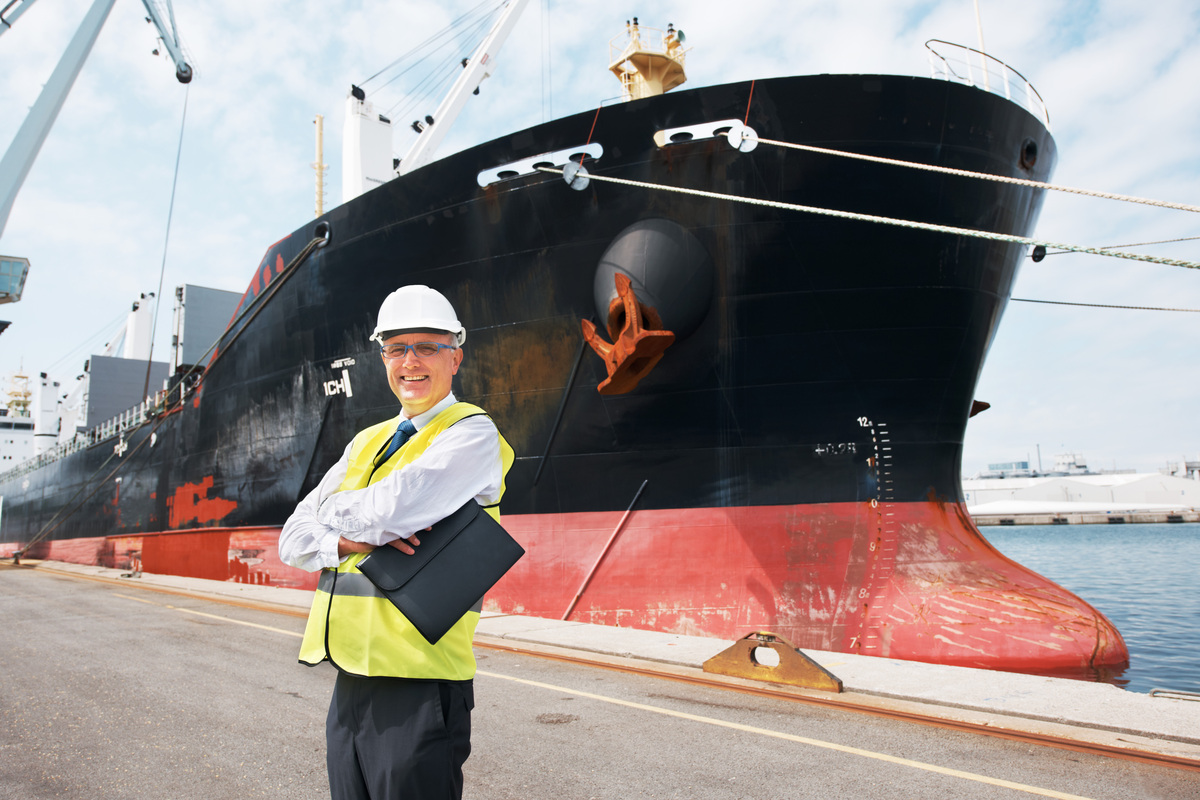Navigating the World of Freight Forwarders: Expertise, Evolution, and Efficiency

Freight forwarders are the unseen architects of global trade, ensuring that the gears of commerce keep turning smoothly. Their ability to adapt and innovate in the face of changing trade dynamics, regulatory environments, and technological advancements will be crucial in shaping the future of global trade.
In a world that becomes increasingly interconnected with each passing day, the role of freight forwarders will only grow in importance. These experts in logistics are not just facilitators of trade; they are vital cogs in the wheel of global commerce, driving growth, enabling connectivity, and fostering international relations.
The role of freight forwarders cannot be understated. These unsung heroes of international trade are the architects behind the smooth transportation of goods, navigating complex logistics, customs regulations, and countless other intricacies that make global commerce possible. This article embarks on a journey to unravel the multifaceted world of freight forwarders, tracing their historical roots, delving into the scope of services they provide, and peering into the crystal ball to anticipate their future in the ever-evolving landscape of global logistics.
As we look to the future, one thing is certain: the world of freight forwarding will continue to evolve. With emerging technologies and ever-expanding global trade, the importance of these experts in navigating the complexities of international logistics will remain steadfast. In the intricate dance of global commerce, freight forwarders are the unsung heroes, ensuring that goods reach their destinations, economies thrive, and the world keeps moving forward.
How the Right Choice of a Freight Forwarder Can Impact Your Business

The selection of a freight forwarder is a decision that extends beyond the realm of logistics. It’s a strategic choice that can significantly influence the efficiency, reach, and growth of your business. A proficient freight forwarder acts not just as a service provider but as a key partner in your business’s journey, adeptly managing logistics, mitigating risks, and unlocking new opportunities. In a rapidly evolving global market, making the right choice in freight forwarding is a step towards ensuring the resilience, adaptability, and success of your business.
Enhancing Efficiency and Reducing Costs
Streamlined Logistics
A competent freight forwarder brings efficiency to your supply chain. They handle the details of logistics, from transportation to customs clearance, enabling your business to focus on its core operations. This streamlined approach can lead to more efficient use of resources and time.
Cost-Effective Solutions
Freight forwarders have expertise in optimizing shipping routes and consolidating shipments, which can result in significant cost savings. Their relationships with carriers also often enable them to negotiate better rates, a benefit that trickles down to your business.
Navigating Complex Regulations with Ease
Compliance and Regulations
One of the most daunting aspects of international trade is navigating the complex web of customs and regulations. The right freight forwarder has the expertise to ensure compliance, thereby minimizing the risk of delays, penalties, and legal issues.
Expertise in Documentation
Freight forwarders are adept at handling the extensive paperwork involved in international shipping, including bills of lading, export declarations, and other necessary documentation. This proficiency can prevent costly errors and delays.
Expanding Market Reach and Opportunities
Global Network
A well-connected freight forwarder can open doors to new markets. Their global network allows your business to expand its reach, explore new markets, and tap into emerging economies.
Flexible Solutions for Market Demands
The ability to adapt to market fluctuations is crucial. A proficient freight forwarder can provide flexible logistics solutions that adjust to changing market demands, ensuring your business remains competitive and agile.
Enhancing Customer Satisfaction
Reliability and Timeliness
The reliability of getting your products to customers on time is vital for maintaining customer satisfaction. A reliable freight forwarder ensures timely deliveries, which is crucial for preserving the reputation of your business.
Real-time Tracking and Communication
Modern freight forwarders offer real-time tracking and transparent communication, keeping you and, by extension, your customers informed about the whereabouts of shipments. This transparency enhances customer trust and satisfaction.
Supporting Business Growth and Scalability
Scalable Solutions
As your business grows, your logistics needs will change. The right freight forwarder provides scalable solutions that grow with your business, ensuring that your logistical capabilities always match your business needs.
Strategic Partnership
An effective freight forwarder acts as a strategic partner, offering insights and advice that can help shape your business strategies, particularly in terms of logistics and market expansion.
Mitigating Risks and Managing Crises
Risk Management
Freight forwarding involves inherent risks, from cargo damage to transportation delays. A seasoned forwarder has robust risk management strategies, including offering cargo insurance, to protect your business against unforeseen events.
Crisis Management
In times of crisis, such as natural disasters or global disruptions, a resourceful freight forwarder can be indispensable. They can quickly adapt logistics strategies, finding alternative routes or modes of transport to keep your supply chain moving.
The Growing Importance of E-commerce

E-commerce is not just a passing trend; it is a transformative force reshaping the landscape of global trade and commerce. Its continuous growth reflects changing consumer preferences and the endless possibilities offered by digital technology. For businesses, embracing e-commerce is no longer an option but a necessity to remain competitive in this rapidly evolving market. As we look to the future, the intersection of e-commerce with emerging technologies and sustainable practices will likely be the next frontier, further revolutionizing how we buy, sell, and engage with the global economy. The rapid advancement of digital technology, combined with changing consumer behaviors, has catapulted e-commerce to the forefront of retail and business. This article delves into the expanding significance of e-commerce, examining its impact on consumer habits, businesses, and the broader economic landscape.
The Rise of E-commerce: A Digital Revolution
Transforming Consumer Behaviors
The digital era has reshaped how consumers interact with businesses. Online shopping offers convenience, variety, and often better pricing, leading to a significant shift in purchasing habits. Consumers now expect 24/7 access to products and services, pushing traditional retailers to adapt to this new digital landscape.
Global Reach and Accessibility
E-commerce has democratized access to global markets. Small and medium-sized enterprises now have the tools to reach customers worldwide, breaking down geographical barriers that once limited their market presence.
The Impact on Traditional Retail
Shift in Retail Strategies
The surge in e-commerce has compelled traditional brick-and-mortar stores to rethink their strategies. Many have embraced a hybrid model, combining in-store experiences with online platforms to stay competitive and relevant.
The Challenge of Adaptation
For some traditional retailers, adapting to e-commerce has been challenging. The need for digital infrastructure, online marketing skills, and a robust logistics network can be daunting, particularly for smaller retailers.
E-commerce and the Global Economy
Boosting Economic Growth
E-commerce is a significant driver of economic growth. It has created new markets, generated employment, and contributed to a rise in global trade. The ease of starting an online business has also spurred entrepreneurship, further stimulating economic development.
Changing the Landscape of Global Trade
E-commerce has altered the dynamics of international trade, enabling more inclusive participation and diversifying the range of products and services in the global market. It has also brought about changes in trade policies and regulations, as governments strive to adapt to the digital economy.
Technological Advancements Fueling E-commerce
The Role of Big Data and AI
Technologies like big data analytics and artificial intelligence (AI) are revolutionizing e-commerce. They enable personalized customer experiences, optimized supply chains, and more effective inventory management.
Mobile Commerce and Social Media
The proliferation of smartphones and the rise of social media have opened new avenues for e-commerce. Mobile commerce (m-commerce) and social media platforms now play a significant role in influencing consumer choices and facilitating online transactions.
Challenges and Opportunities
Cybersecurity Concerns
As e-commerce grows, so do concerns about data privacy and cybersecurity. Businesses must prioritize protecting customer data to maintain trust and comply with increasing regulatory requirements.
Sustainable Practices
The environmental impact of e-commerce, particularly in terms of packaging waste and carbon footprint, poses a challenge. This has led to a growing focus on sustainable practices, from eco-friendly packaging to green logistics.
Choosing the Right Freight Forwarder: A Strategic Decision for Business Success

Choosing the right freight forwarder is a decision that requires careful consideration and research. It’s about finding a partner that aligns with your business’s logistics needs, industry requirements, and growth ambitions. By focusing on experience, services, network, technology, customer service, compliance, cost, and risk management, you can select a freight forwarder that not only meets your current shipping needs but also
supports your long-term business goals. Remember, the ideal freight forwarder should act as an extension of your business, ensuring that your logistics operations are efficient, cost-effective, and seamlessly integrated into your overall supply chain strategy. With the right partner, you can navigate the complexities of international trade with confidence and set your business on a path to continued growth and success in the global marketplace.
Freight forwarders are not just service providers; they are crucial partners in navigating the complexities of global shipping and logistics. This guide aims to provide comprehensive insights into the critical factors to consider when choosing a freight forwarder, ensuring that your choice aligns with your business needs and objectives.
Understanding the Role of a Freight Forwarder
Before delving into the selection process, it’s essential to understand what a freight forwarder does. Freight forwarders act as intermediaries between businesses that need to transport goods and the various transportation services required to move those goods across international borders. They handle logistics of shipping, including customs clearance, warehousing, booking cargo space, and negotiating freight charges.
Key Considerations in Selecting a Freight Forwarder
1. Experience and Expertise
- Industry Experience: Look for a forwarder with a solid track record in your specific industry. Experience often translates to a better understanding of your unique shipping needs and challenges.
- Expertise in Your Market: Consider if they have specific expertise in the countries or regions you are shipping to or from. Knowledge of local regulations and practices is invaluable.
2. Range of Services
- Evaluate if the forwarder offers a comprehensive range of services that meet your specific requirements, such as warehousing, cargo tracking, and handling of hazardous materials.
- Assess their ability to provide tailored services based on your business’s unique demands, such as flexible shipping schedules or specialized cargo handling.
3. Network and Global Presence
- A forwarder with a broad international network and partnerships can provide more options and flexibility for routing and storing your shipments.
- Check their presence in key markets and whether they have reliable agents or branches worldwide.
4. Technology and Infrastructure
- Ensure that the forwarder uses up-to-date technology for tracking and managing shipments, which is crucial for visibility and real-time updates.
- Examine their infrastructure, including warehousing capabilities and transportation connections.
5. Customer Service and Communication
- Effective communication is critical. Choose a forwarder that is responsive and proactive in providing information and handling inquiries.
- Look for testimonials or references that can attest to their reliability and quality of customer service.
6. Compliance and Accreditation
- Verify that the forwarder adheres to international shipping regulations and has necessary accreditations, such as IATA or FIATA membership.
- Ensure they have a good reputation with customs and other regulatory agencies.
7. Cost vs. Service Quality
- While cost is an important factor, it should not be the sole deciding factor. Weigh the cost against the quality and range of services provided.
- Understand their pricing structure and ensure there are no hidden costs.
8. Risk Management and Insurance
- Assess their approach to risk management and whether they offer adequate insurance options to protect your cargo.
Related Articles
